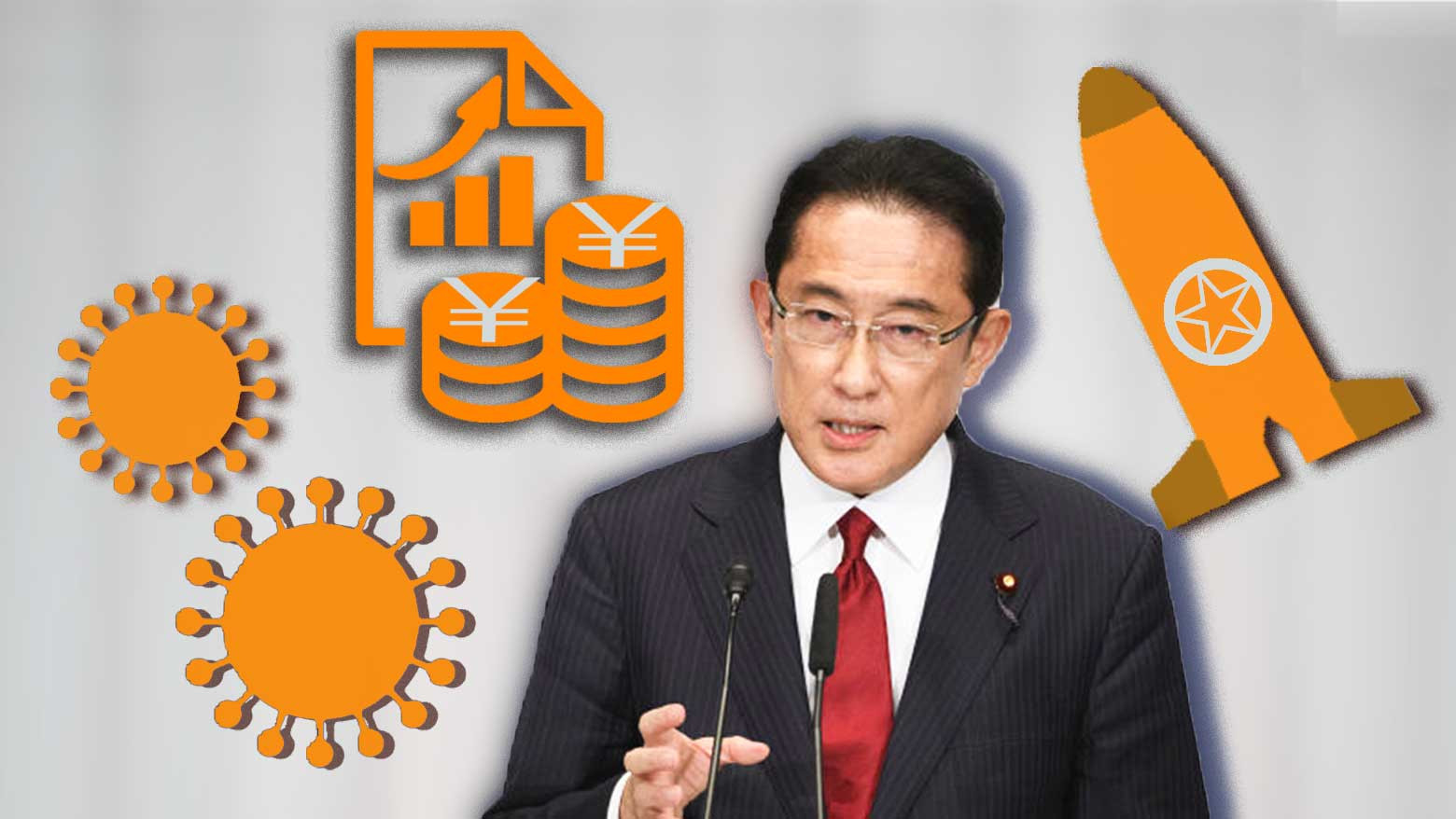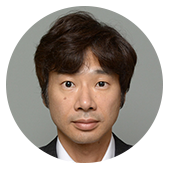Coronavirus
Kishida devoted a large portion of his speech to his strategy for dealing with COVID-19. He said he would be flexible and base his decisions on the latest scientific findings.
"I will deal with the situation using the latest knowledge, and without fear. Even if it's a policy we have already decided, we will not hesitate to change it as we go if there is a better way. We will flexibly adjust our response.”
Kishida says the government has instructed municipalities to bring forward their plans to administer booster shots. The intervals between second shots and boosters will now be six months for elderly people and seven for everyone else.
"We will use the 18 million doses we have in reserve to start the process in March. Elderly people who had their second doses at least six months ago will be eligible. For the general public, 55 million people who had their second doses seven months ago will be eligible. In some municipalities we will shorten that to six months."
Kishida referred to outbreaks at some US bases in Japan, saying the government will continue discussions on the matter through the Japan-US Joint Committee.
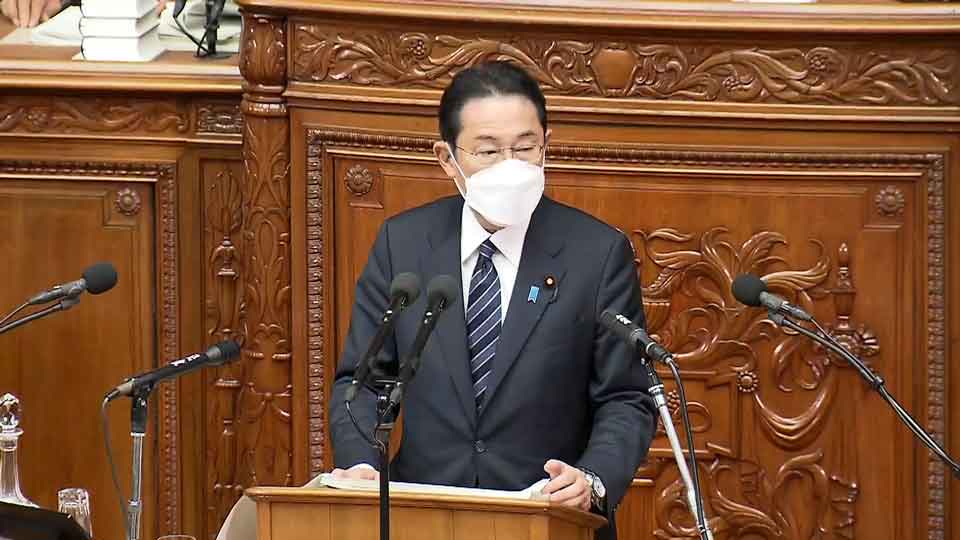
"New capitalism"
The Prime Minister said the key to revitalizing Japan is an economic agenda he has dubbed "new capitalism,” which he says will create a “fairer distribution of wealth.”
He said neoliberalism, with its emphasis on deregulation and the free market, has widened disparities between the rich and the poor as well as urban and rural areas.
Kishida said the world is beginning to move toward economic and social reforms that will help to redress the harmful effects of neoliberalism, and create a sustainable society.
"My new capitalism will be based on a virtuous cycle of growth and distribution. I will lead the world's movements through new capitalism. With the government and citizens sharing the whole picture and working together, we will create a society where everyone can live happy and affluent lives."
One of Kishida's priorities is to increase wages and narrow the income gap.
"If we distribute the fruits of growth to workers, it will lead to increased wages -- an investment in the future -- and become a source of further growth. I will create such a virtuous cycle."
Touching on the annual labor-management wage negotiations held each spring, he said he hopes that companies will increase pay for their employees.
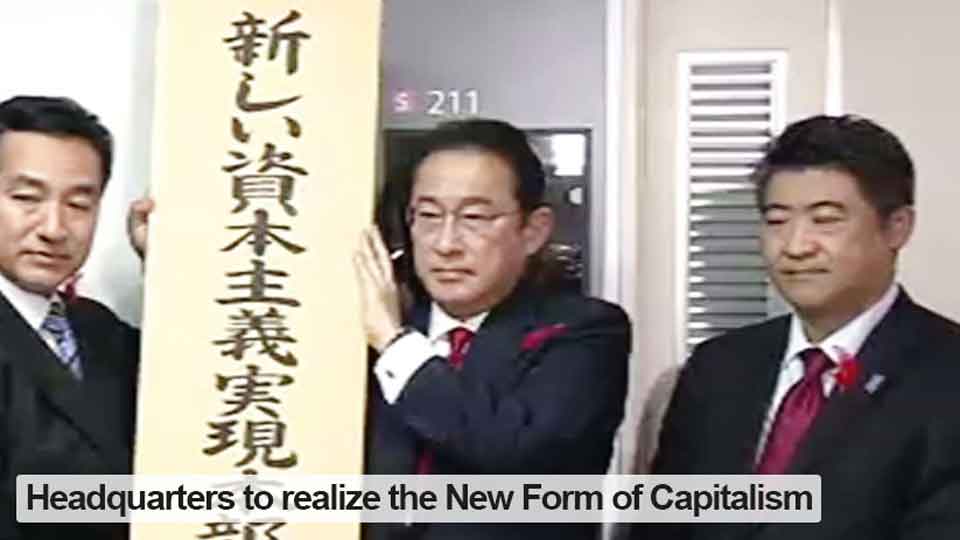
Diplomacy
Kishida, a former foreign minister, had China at the forefront of his comments on foreign policy.
This year is the 50th anniversary of diplomatic ties between the two countries -- and though those ties have been strained in recent years over China’s military buildup and assertiveness in the South and East China seas, Kishida promised to create a constructive and stable relationship.
"We will say what needs to be said to China and strongly demand responsible actions. At the same time, we will have dialogue and cooperate on issues where we share concerns."
Kishida also condemned North Korea's recent string of ballistic missile launches, and repeated an idea he has raised since his election: that Japan may need the ability to attack enemy bases.
"The government will work to protect our land, waters, airspace, and the lives and property of the people. For this reason, the government will spend a year drawing up a new National Security Strategy, new National Defense Program Guidelines, and a new Medium-Term Defense Program.
The government will not rule out any options during these processes, including the so-called capability to attack enemy bases, and will consider them in a realistic manner."
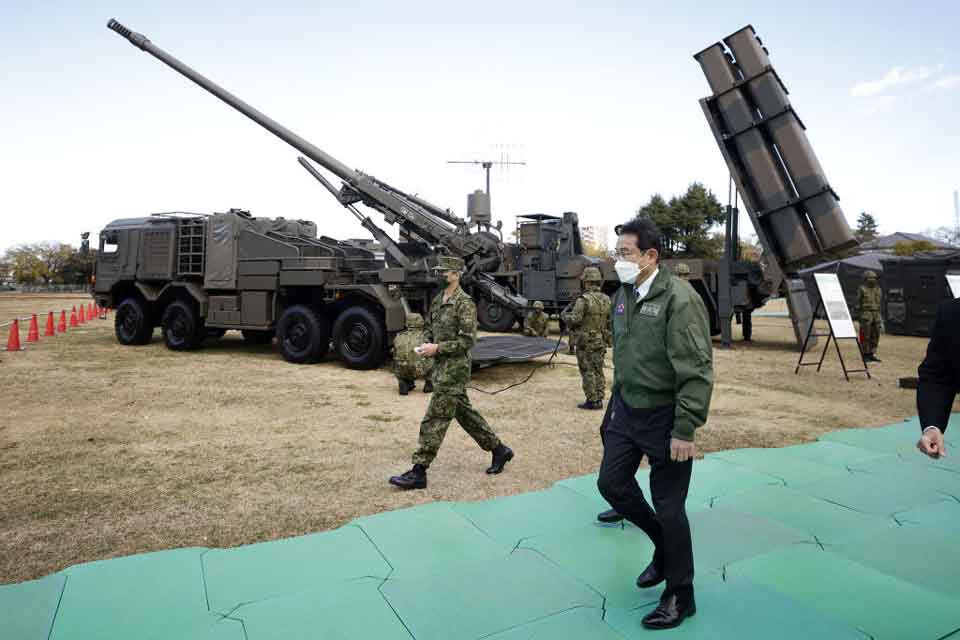
Analysis by NHK senior commentator Masuda Tsuyoshi
The main focus of Kishida's policy speech is his adaptability in the way he will handle the pandemic.
The public appears to back this flexible approach, since his approval ratings have risen in recent weeks.
Kishida also spent a lot of time talking about his "new capitalism," but he hasn't come up with any specific policies to back this up yet. He is right to point out the harmful effects of neoliberalism and argue they need to be corrected, but it is far from clear how he plans to do that.
Simply asking companies to raise wages is not enough. Kishida said he will put together a grand design and action plan this spring. But unless he provides detailed explanations in upcoming Diet debates, that may turn out to be nothing but a nice slogan.
The 150-day session will run until June 15, just before an Upper House election. The administration is trying to pass a budget bill for the new fiscal year, along with a bill that includes tax incentives for employers to raise wages, and another bill to strengthen economic security.
Kishida believes that if his administration can get all of these across the line, it will convince voters to support ruling party candidates.
He can expect a tough ride in the Diet, though, from opposition lawmakers who say the government's anti-coronavirus measures are inadequate, and who want the government to get tougher on the US military in Japan over its coronavirus measures.
Aired: Jan. 17, 2022
